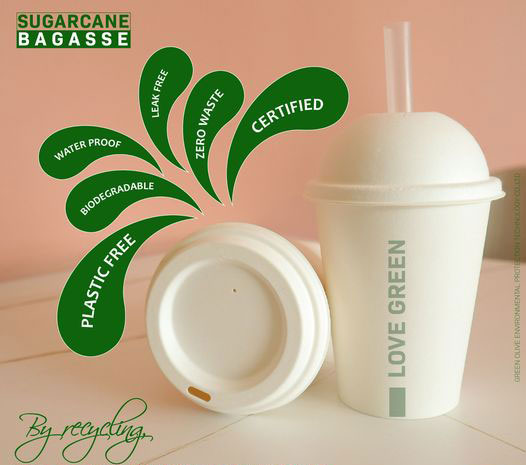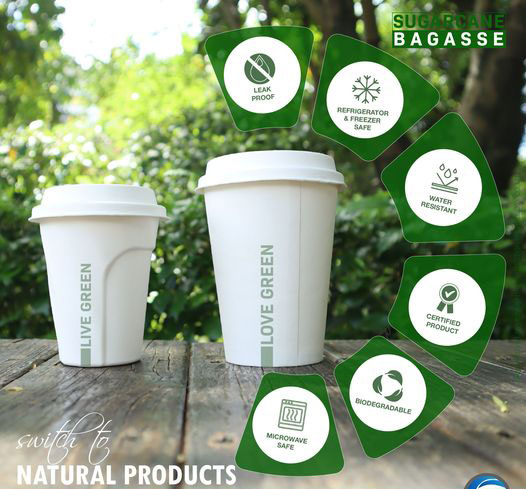Global Leading Automatic
Production Base of Eco Cup Lids
Production Base of Eco Cup Lids
Without any industrial decomposing machine, it takes about 45-90 days for the pulp molded environmentally friendly disposable degradable cup to decompose in the natural state of the landfill.
Conventional disposable degradable cups are generally based on 70%-90% sugarcane fiber + 10%-30% bamboo pulp fiber. Different disposable degradable cups will also adjust different fiber ratios according to the shape, angle, hardness, and stiffness of the product. Of course, wheat straw, wheat straw, reed, and other plant fibers will also be added as needed. All are made of plant fibers, and no chemical materials such as PP and PET are added.

At present, most of the oil repellants in the vegetable fiber cups on the market contain fluorine, and the cups that are waterproof and not oilproof are fluorine-free.
If the degradable cups are required to be fluorine-free and waterproof and oil-proof, a better alternative at present is film coating. PBAT is currently the most widely used and used composite material in pulp molded environmentally friendly tableware.
In the absence of any industrial decomposing machine, it takes about 45-90 days for the pulp molded environmentally friendly disposable degradable cups to decompose in the natural state of the landfill. No harm will be done.
After degradation, 82% of the ingredients are organic matter, which can be used as fertilizer for land use.
The biodegradable plant fiber cup meets the national quality inspection standards of "Pulp Moulded Tableware", the United States Food and Drug Administration (FDA), the German New Food and Dietary Goods Act (LFGB), and other international standardized inspection standards.

Logo can be printed, most of the prints are on the outside of the cup, the bottom of the cup, or the top of the cup, and arc printing is required. The printing equipment is divided into screen printing, pad printing, and laser printing (inkjet printing).
Printed products will increase the cost of the product accordingly.
Unbleached vegetable fiber pulp is yellow due to a small amount of lignin and colored impurities, and the fibers are relatively hard. The semi-bleached pulp contains a lot of pentose polysaccharides, and the color is light yellow, commonly known as the true color. The fibers of bleached pulp are white, pure, and soft, but due to the bleaching treatment, the fibers are less strong than unbleached pulp. Bleach is generally hydrogen peroxide bleach, not chlorine bleach!
